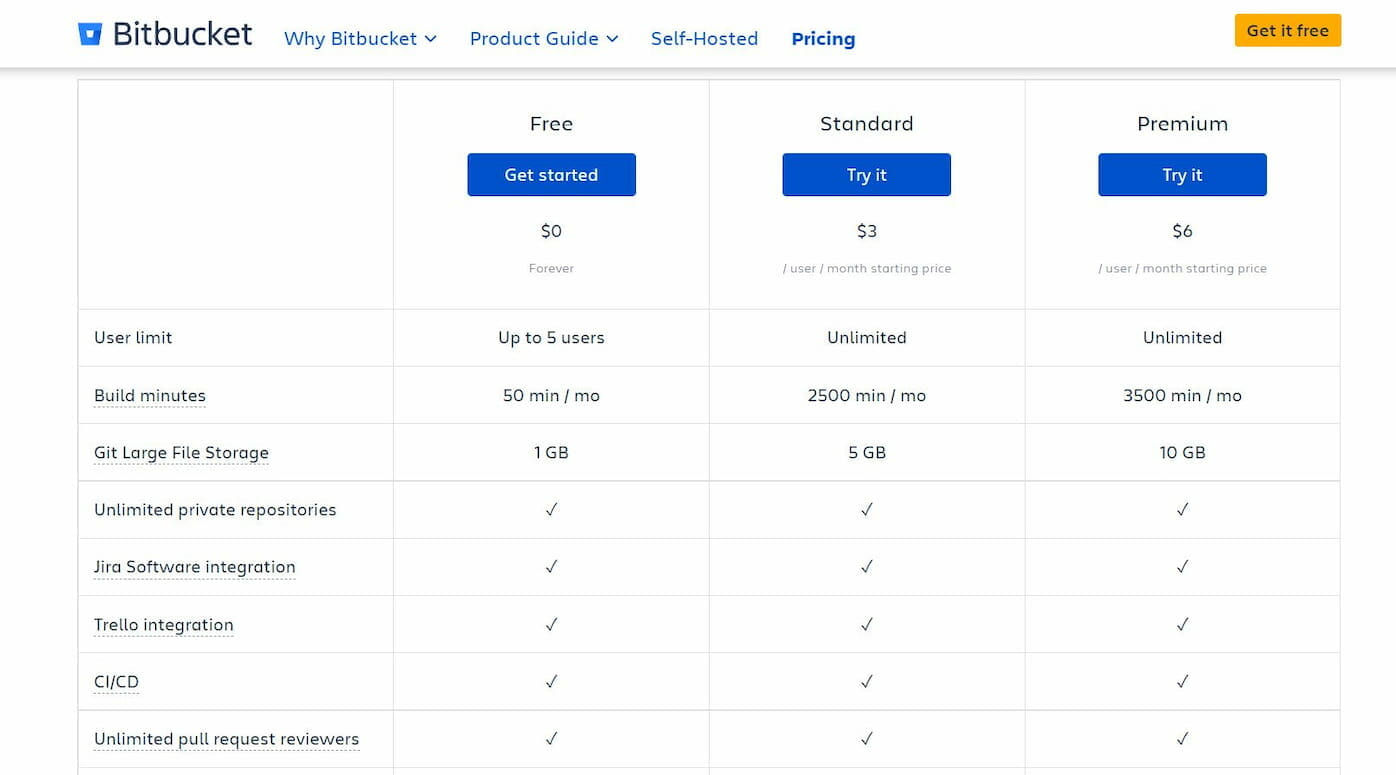While working and collaborating on a big software development project, a version control system is essential. And in turn, it is crucial to choose the best code repository for your version control system.
The code repository hosting system refers to a third-party application that offers you management and organization tools for your version control system. The code repository you use plays a pivotal role in your developmental workflow and productivity.
Among the code repositories, GitHub and Bitbucket are two of the most prominent options. In this GitHub vs Bitbucket analysis, we are going to discuss in detail their strengths and weaknesses, pros and cons.
Why Choosing the Correct Code Repository Hosting System is Essential in Development?
As stated earlier, a code repository server allows you to manage, enhance and modify your version control system. You will be to collaborate with your team members working on the same project by using a repository.
Moreover, repositories track changes made in your code, store all previous versions of your code. One can also revoke the changes and return to a previously installed state with help of a repository.
There are a few things that should be considered while choosing a code repository. Things like whether you are looking for a private or public repository are necessary to keep in mind. Because certain hosting systems are tailor-made for a public repository. While others are more suited for private repositories.
You should also look for a certain set of features in your code repository which are listed below:
-Support for VCS (version control system) -Access for all collaborators -Availability of extensions and third-party integration for enhancing your VCS -Affordable and reasonable pricing plan options -Friendly User Interface
GitHub vs Bitbucket: An Overview
GitHub and Bitbucket both provide public and private repositories for hosting your code. There are many similarities in the ways that these two hosting platforms operate. Both these hosting platforms provide you with basic functionalities such as:
-Creating and managing public and private repositories -Two-factor authentication during logging in -Tracking issues and making pull requests -Markdown support and in-line code editing -Code reviewing
However, while both these platforms work in similar ways, there is a fundamental difference between them. GitHub focuses on public code. In contrast, Bitbucket is more focused on private code. Which means. GitHub is more suited to small open-source individual projects. On the other hand, Bitbucket is more beneficial for large-scale enterprise and business projects.
Let’s look at both these hosting platforms separately to get a better understanding of what they offer for developers.
Overview of GitHub

GitHub is an open-source code hosting platform. It was launched in 2004 and got acquired by Microsoft in 2018. Written in Erlang and Ruby, it is known as the largest source code hosting platform in the world.
Git is the preferred version control system for most developers in the world and GitHub is considered the hub for Git. GitHub is by far the most popular development platform in the world. It has over 200+ million repositories and an astounding number of 65+ million developers are using GitHub.
The most noteworthy features of GitHub are:
-Supports Git completely and SVN partially -Support for more than 200 programming languages -A dedicated desktop client for both MAC and Windows -Direct Integration with Google Cloud, Azure, Zendesk, Amazon, Cloudbees, and so on. -Create unlimited public repositories for free -Branch comparison view -Bug tracking and cloud hosting using third-party API integrations
Overview of Bitbucketb

Bitbucket was developed by Atlassian in 2008. It is built using Python and the Django Web Framework. Bitbucket is well-known for its flexibility in controlling VCS.
The main features of Bitbucket include:
-Unlimited free private repositories -Branch Comparison with history view -Restrict branch access and manage branch permissions -Integration with useful tools such as Jenkins, Jira, Crucible, Bamboo, etc -Full integration with Trello -Support for Git, SVN, Codeplex, and GoogleCode -An android app named Bitbeaker -Mac and Windows client named Sourcetree
GitHub vs Bitbucket: The Key Differences
Both GitHub and Bitbucket are similar in offering many basic functionalities. However, there exist some key differences between them too. Especially in the way they deal with third-party integrations and extensions. There is also a stark contrast in their user interfaces, default settings, etc.
Below we will look at some of the key differences between these two code repositories:
User Interface
GitHub’s user interface is not overly complex or lacks any features. However, it’s a bit more cluttered and less organized.
In contrast, the user interface of Bitbucket is clean, organized, and incredibly user-friendly. One can easily find what they are searching for easily by moving around its dashboard. Also, it has a very neat and clear navigation sidebar.
Extensions and Third-party Integrations
Both GitHub and Bitbucket come with a plethora of extensions and third-party integrations to enhance the functionality and usefulness of the hosting platform. Although, Bitbucket outnumbers GitHub in terms of extensions and apps.
The Atlassian Marketplace of BitBucket consists of over 2300 apps. While the GitHub Marketplace also has many useful apps and extensions, the number is low compared to Bitbucket.
Branch Permissions
You can grant user access to specific branches using both GitHub and Bitbucket. However, Bitbucket allows you to enable branch permissions for free in every plan. On the contrary, in GitHub, branch restriction is free for only public repositories.
Wikis and Boards
For collaboration and communication among team members of a project, a wiki comes in handy. Unfortunately on GitHub, free private repositories cannot have their own wikis. On the other hand, all free public and private repositories in Bitbucket can have separate wikis.
However, GitHub comes with a built-in Projects tab and Bitbucket doesn’t.
Community and Support
In terms of numbers, the GitHub community is much larger than the one of Bitbucket. Nevertheless, Bitbucket comes with a great community and support base too.
Pricing
According to the number of users and storage capacity, the price varies for both GitHub and Bitbucket. GitHub offers you unlimited public and private repositories with 500 MB of storage space without any user limit.

Bitbucket also allows you to create free public and private repositories with 1GB of storage. However, the free plans have a user limit of five.

There are various paid subscription packages too in both GitHub and Bitbucket.
GitHub vs Bitbucket: The Summary
It is true that choosing a perfect code repository can be tricky. However, if you know which platform is better for which specific use case, then the decision-making becomes easier. In this article, we can see that GitHub is more suited towards open-source personal or projects with a small team. On the flip side, Bitbucket is a convenient and cost-effective solution for large businesses and enterprises.
